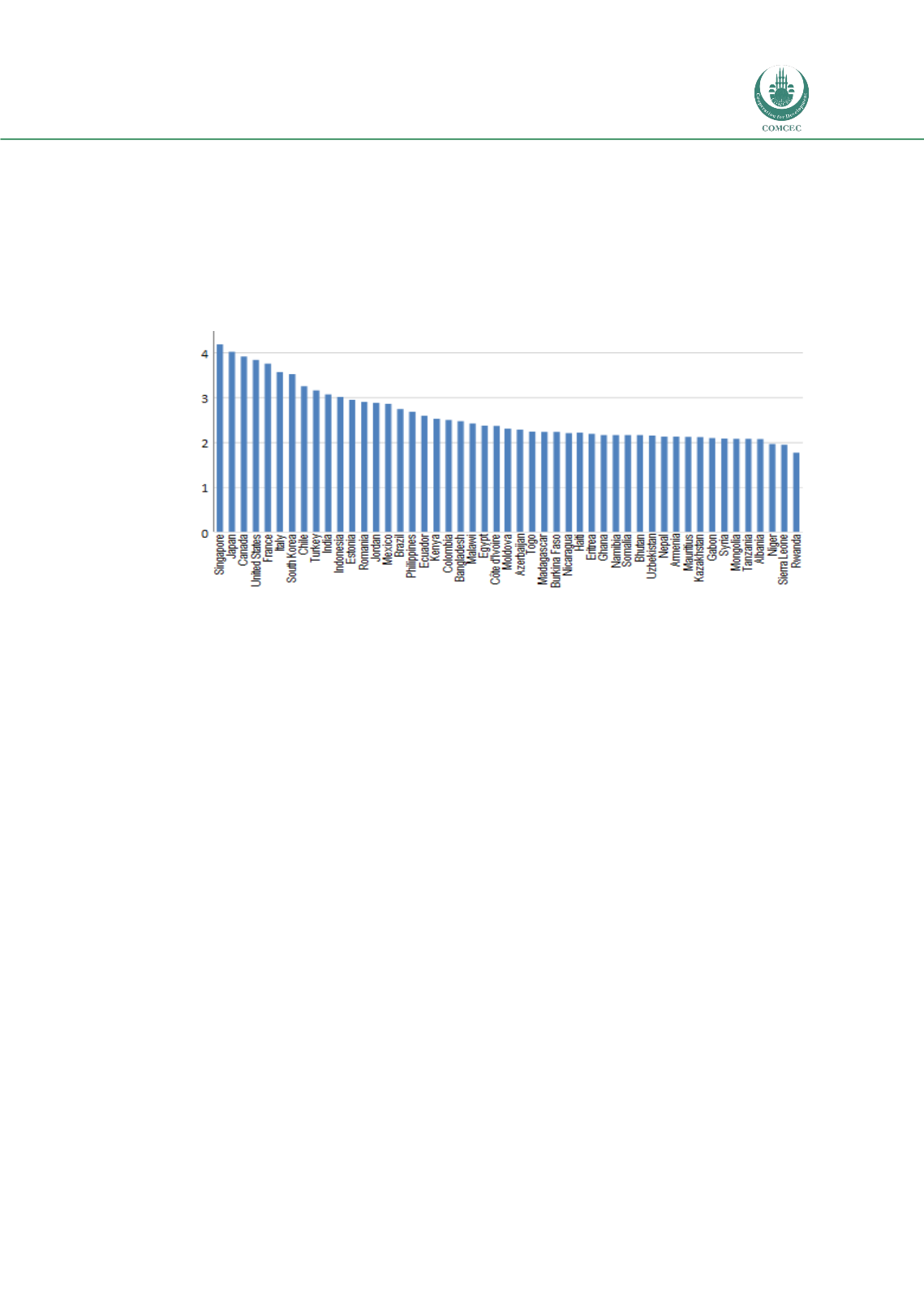

Facilitating Smallholder Farmers’ Market Access
In the OIC Member Countries
87
Customs Union enables most goods to circulate freely. The net result is an efficient
logistical network for goods produced or sold in Turkey. According to the World Bank’s
Logistics Performance Index, which measures the overall efficiency of moving goods into
and within a country, Turkey ranks highly, slightly below Chile and ahead of South Korea
(Figure 54).
Food
safety
A distinguishing feature of advanced food value chains is their food safety and food hazard
control systems. As a greater share of food is purchased through supermarkets and fast-
food restaurants, those businesses carry substantial reputational risk arising from food-
borne illness. Governments often promulgate regulations to ensure that domestic food
supplies are safe, but in some cases, firms will stipulate even more rigorous hazard control
measures in the contracts they strike with suppliers.
In recent years, Turkey has tightened quality and safety rules governing the agricultural
sector and food industry. The Production, Consumption, and Inspection of Food Law,
implemented in 2004, is the umbrella legislation designed to protect public health and lay
out standards for the food industry. Another key piece of legislation is Turkey’s 2006 Food
Law (No. 5996), which requires all food processing firms to conform to EU food safety
standards over time. In large part, these laws and related legislation on animal health and
field practices were intended to bring domestic food supply chains into compliance with
prevailing EU standards in anticipation of Turkey’s EU accession.
Because strong food safety protocols are increasingly recognized as mechanisms for
removing legal barriers to some trade destinations and creating a competitive advantage,
government has a variety of roles to play with respect to food safety and quality. First, it is
government’s clear responsibility to establish and enforce minimum standards that
protect domestic consumers and to enforce standards agreed upon in trade treaties.
FIGURE 54: LOGISTICS PERFORMANCE INDEX, SELECTED COUNTRIES, 2014
Source:
Logistics Performance Index (World Bank 2014e).

















